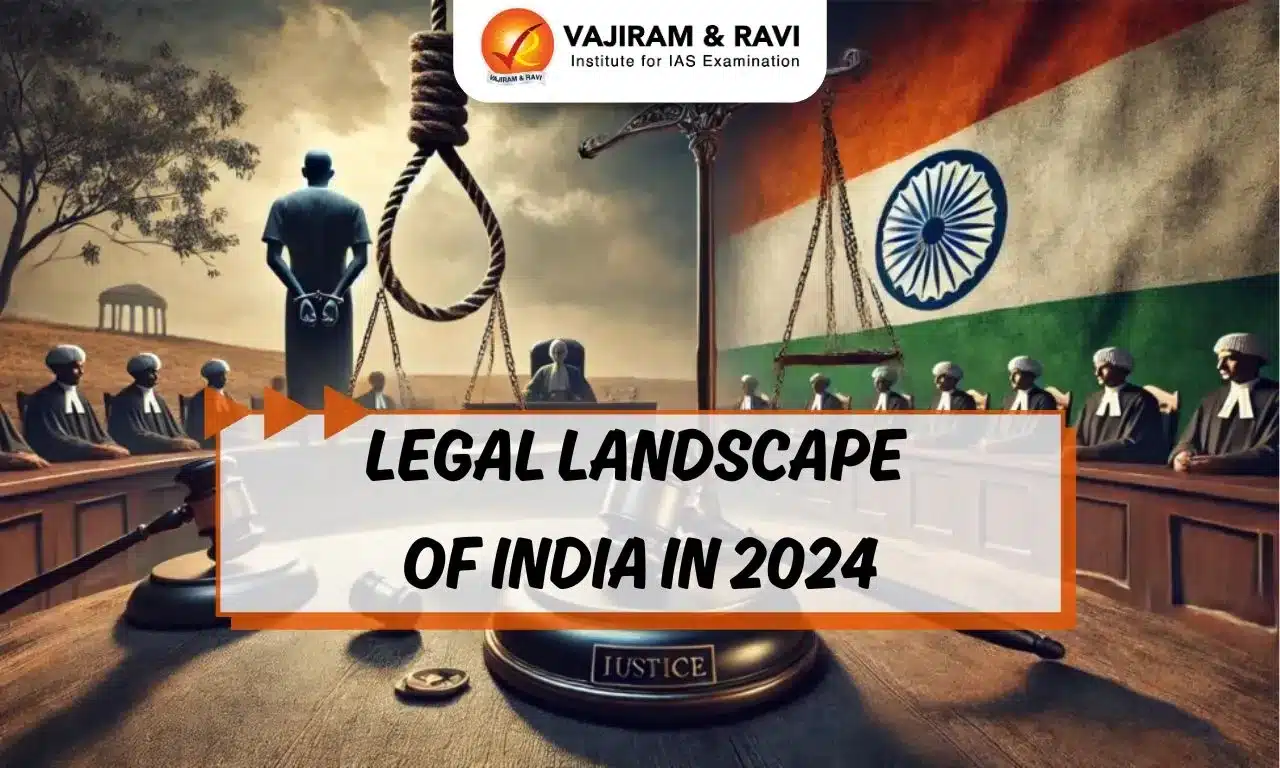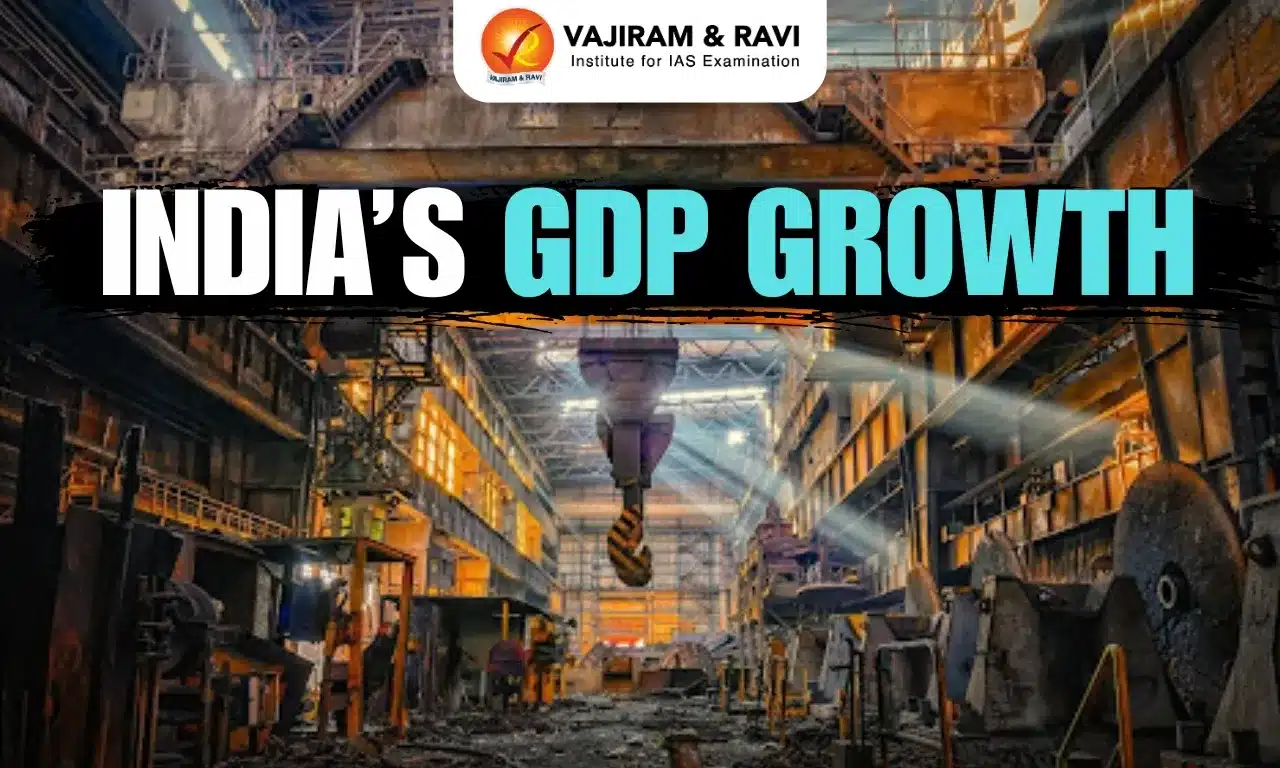What’s in today’s article?
- Why in News?
- Key Verdicts and Interventions in 2024
- Challenges Ahead for 2025
- Major Cases to Watch in 2025
- Contentious Legislative Reforms
- Conclusion
Why in News?
- 2024 marked a significant shift in India’s judiciary, with the Supreme Court taking decisive stances on politically sensitive issues, addressing long-standing criticisms of “judicial evasion.”
- Landmark rulings, major institutional reforms, and debates on contentious laws defined the year, setting the stage for critical developments in 2025.
Key Verdicts and Interventions in 2024:
- Landmark judgments:
- Electoral Bonds scheme: Declared unconstitutional, addressing concerns of transparency in political funding.
- Bilkis Bano case: Reversed the Gujarat government’s remission for convicts in a high-profile gangrape case.
- Bulldozer demolitions: Issued guidelines to curb illegal practices.
- Opposition leaders: Granted bail in politically charged cases, signaling judicial independence.
- Mandir-Masjid disputes: Barred fresh district court cases on ownership of religious sites.
- Long-pending issues addressed: Constitution Benches took up key cases, including:
- Aligarh Muslim University’s minority status.
- Taxation of industrial alcohol.
- Significance of these verdicts and interventions: These efforts continued reforms initiated during former Chief Justice U U Lalit’s tenure and advanced under Chief Justice D Y Chandrachud.
Challenges Ahead for 2025:
- Transition in leadership:
- Three Chief Justices will preside in 2025:
- CJI Sanjiv Khanna (until May).
- Justice Bhushan Ramkrishna Gavai (194-day tenure).
- Justice Surya Kant (November 2025–February 2027).
- Short tenures of CJIs mean the composition of the Collegium, which makes recommendations for the appointment of judges, sees frequent changes.
- Short tenures also pose challenges to continuity in addressing institutional reforms and pendency.
- Three Chief Justices will preside in 2025:
- Institutional reforms: Digital advancements under Justice Chandrachud have increased public scrutiny of the judiciary, requiring further adaptation.
Major Cases to Watch in 2025:
- Religious and cultural issues:
- Places of Worship Act: Constitutional challenges to the 1991 law freezing religious character as of 1947 are pending.
- Hijab ban: A 3-judge bench will reexamine the legality of Karnataka’s ban on headscarves in schools.
- Essential religious practices: Re-evaluation of doctrines affecting cases like women’s entry into religious sites, which was decided in the Sabarimala verdict (2018).
- Citizenship and secularism (The Citizenship (Amendment) Act, 2019): Challenges on grounds of exclusion of Muslims and violation of secularism will test the Court’s interpretation of equality and fraternity.
- Gender rights (Marital rape): Debate over criminalising marital rape continues, with concerns of disproportionate consequences.
- Enforcement Directorate’s powers: Judicial scrutiny of the ED’s arrest powers and procedural safeguards could redefine the scope of investigative agencies.
Contentious Legislative Reforms:
- One Nation, One Election: Among key legislative reforms in the pipeline, the Bills to hold simultaneous elections to Lok Sabha, and state and Union Territory Assemblies, will likely be most significant.
- New criminal laws: Replacement of colonial-era laws with Bharatiya Nyaya Sanhita, 2023, and related statutes has introduced progressive changes but also contentious provisions, such as:
- Rebranding sedition as “deshdroh” (treason).
- Extending detention periods.
- Uniform Civil Code (UCC):
- Uttarakhand’s UCC, effective January 2025, mandates registration of live-in relationships and introduces penalties for non-compliance.
- Similar codes in BJP-ruled states face scrutiny for encroaching on personal freedoms.
- Sub-classification of Scheduled Castes: States can now create sub-quotas within Scheduled Caste reservations, potentially reshaping affirmative action policies.
Conclusion:
- 2024 underscored the Supreme Court’s evolving role in addressing critical legal and social issues.
- With high-stakes cases and legislative reforms on the horizon, 2025 promises to be another pivotal year for India’s judiciary.
- The challenge lies in balancing judicial intervention with respect for legislative intent, ensuring justice and constitutional values prevail.
Q.1. What was the Sabarimala verdict?
In 2018, the Supreme Court of India ruled that the practice of excluding women from the Sabarimala Temple was unconstitutional.
Q.2. What is the One Nation, One Election Bill?
The Law Minister introduced two Bills in Lok Sabha – a Constitution Amendment Bill to sync the terms of Lok Sabha and state Assemblies, and a consequential Bill to amend the relevant Acts for UTs and the NCT of Delhi to enable simultaneous polls there as well.
Source: IE
Last updated on January, 2026
→ Check out the latest UPSC Syllabus 2026 here.
→ Join Vajiram & Ravi’s Interview Guidance Programme for expert help to crack your final UPSC stage.
→ UPSC Mains Result 2025 is now out.
→ UPSC Notification 2026 is scheduled to be released on January 14, 2026.
→ UPSC Calendar 2026 has been released.
→ UPSC Prelims 2026 will be conducted on 24th May, 2026 & UPSC Mains 2026 will be conducted on 21st August 2026.
→ The UPSC Selection Process is of 3 stages-Prelims, Mains and Interview.
→ Prepare effectively with Vajiram & Ravi’s UPSC Prelims Test Series 2026 featuring full-length mock tests, detailed solutions, and performance analysis.
→ Enroll in Vajiram & Ravi’s UPSC Mains Test Series 2026 for structured answer writing practice, expert evaluation, and exam-oriented feedback.
→ Join Vajiram & Ravi’s Best UPSC Mentorship Program for personalized guidance, strategy planning, and one-to-one support from experienced mentors.
→ UPSC Result 2024 is released with latest UPSC Marksheet 2024. Check Now!
→ UPSC Toppers List 2024 is released now. Shakti Dubey is UPSC AIR 1 2024 Topper.
→ Also check Best UPSC Coaching in India

















